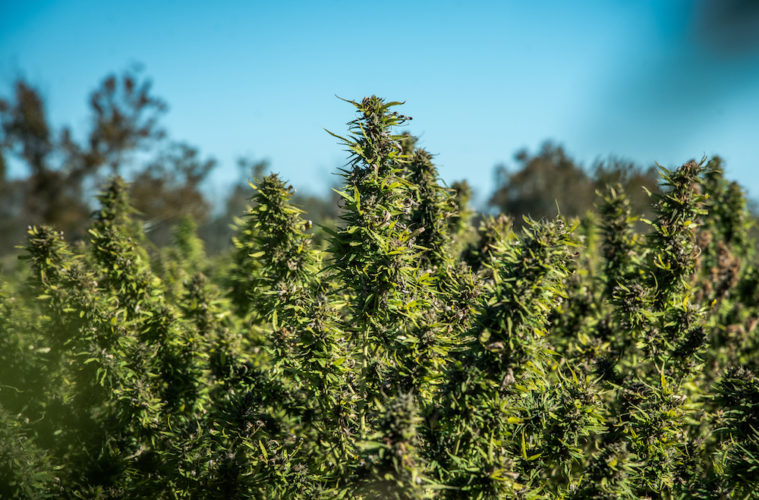GenCanna Global has found a “holy grail” for hemp genetics: the ability to produce 0.0% THC hemp strains, without genetic editing.
A Kentucky firm announced on Monday that it has developed new hemp genetics that produce virtually no THC. The new lines of hemp, which have tested at 0.0 percent THC, were created through a partnership with GenCanna Global and the University of Kentucky. The genetics will be marketed under the brand Outdoor Cannabis (OC), according to a press release from the company.
Kentucky Agriculture Commissioner Ryan Quarles said in the release that the state promises to be leader in the reemerging hemp industry.
“This is a remarkable development for the hemp industry and for Kentucky,” said Quarles. “When I became Agricultural Commissioner, I promised to make Kentucky the epicenter of hemp research and production in the United States. Announcements like these prove Kentucky is well-positioned to lead the nation in this arena.”
Steve Bevan, the president of GenCanna and the chairman of the U.S. Hemp Roundtable, said that continued success of the hemp industry will require plant varieties that can be mass produced reliably.
“The growth of our industry necessitates innovations that scale,” said Bevan. “Our… genetics are virtually free of THC and will give both industry participants and industry onlookers confidence in compliance as they work to deliver new solutions from the hemp plant. We built GenCanna to develop scalable supply of CBD products that meet the strictest quality and safety standards, and our work with the University of Kentucky is another step towards us fulfilling that mission.”
GenCanna is a vertically integrated agriculture technology company specializing in the production of hemp rich in CBD and was the first member of Kentucky’s hemp pilot program. Chris Stubbs, the chief science officer at the firm, said that the company’s work with the University of Kentucky and other partners to develop new hemp genetics promises to have a meaningful economic return for the state.
“Our… genetics are virtually free of THC and will give both industry participants and industry onlookers confidence in compliance as they work to deliver new solutions from the hemp plant.” – Steve Bevan
“We are incredibly excited and humbled by partnerships in research and development like this that have meaningful commercial impact and lead to a sustainment of our core goals and missions,” said Stubbs. “These types of opportunities substantiate the economic impact that the reignition of the hemp industry has at the local, state, and international level. Our continued R and D efforts, internally and with partners like the University of Kentucky, will be crucial in unlocking the true potential of the knowledge that’s been lost due to the previous prohibition of hemp.”
Professor David Hildebrand of the University of Kentucky led the research partnership with Henri Marmillon, GenCanna’s global development director. Hildebrand said that the university is focusing on developing varieties of hemp for local farmers.
“The support from GenCanna for industrial hemp research at the University of Kentucky is much appreciated and is facilitating development of industrial hemp as a viable crop for Kentucky farmers,” Hildebrand said. “The overall goal of our industrial hemp research is to improve the quantity and efficiency of CBD production, as well as production of other valuable non-THC cannabinoids in hemp varieties optimized for Kentucky. This involves the genetic selection of hemp varieties with higher CBD levels and nearly zero THC levels.”
Hildebrand noted that the hemp research at the university extends beyond the development of new hemp genetics. GenCanna has sponsored fellowships at UK for master’s and PhD students working to improve hemp as an agricultural commodity.
“We are also developing more rapid, efficient, economical, and accurate methods for measuring cannabinoid levels from large numbers of hemp plants including intact plants growing in fields. The new hemp varieties being developed will be characterized, using methods including molecular genetic fingerprinting, as well as the establishment of a system for certified seed production of the improved hemp varieties.”
Farmers who are a part of the GenCanna Certified Farming Network will be the first to have access to Outdoor Cannabis genetics, according to the company.


